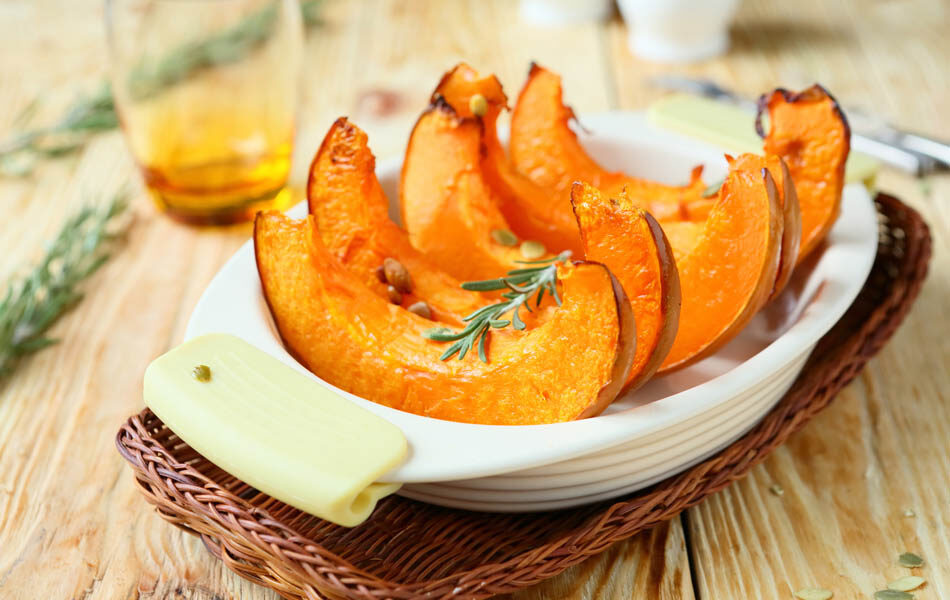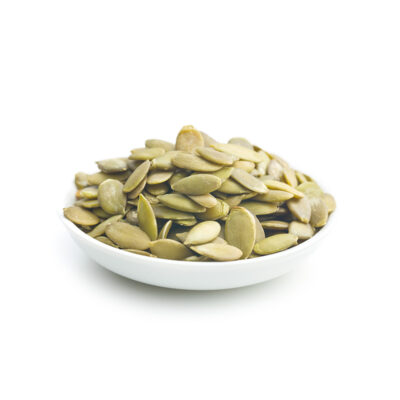Is Pumpkin Good for Diabetes? Nutrition, Benefits
Pumpkin is often cited as a good fruit for diabetes. Let’s take a closer look into the benefits of pumpkin and how it can help to deal with diabetes.

People with diabetes have to modify their diet to manage their condition. A diabetes diet consists of fewer refined foods and more fresh foods, like fruits and vegetables. Many foods can be consumed on the diabetes diet, but can pumpkin and its seeds?
In this article, we’re going to take a look at whether eating pumpkin is good for blood sugar control, the nutritional value, glycemic index of pumpkin, and its health benefits. Let’s dive into the details.
Is Pumpkin Good for Diabetes?
Pumpkin is considered a good food to add to a diabetes-friendly diet. There is evidence to suggest that pumpkins are good for people with diabetes to consume because they reduce blood sugar levels and help manage the condition.
Pumpkin is a fruit with a low-calorie value, high fiber content, and many vitamins and minerals that are essential for a healthy body.
Pumpkin contains lots of dietary fiber. Fiber plays a beneficial role in blood sugar control because the body cannot break it down and, therefore, does not have an effect on blood sugar levels. This means that high-fiber foods can be useful in managing blood glucose levels for diabetes control.
Additionally, a study in mice showed that pumpkins naturally increased insulin production, reducing the reliance on insulin medication and promoting better blood sugar control.
This study also showed that some compounds in pumpkin might be effective in lowering blood glucose levels and helping to reduce the risk of developing diabetes.
Due to the high fiber content in pumpkin, this fruit is good for weight loss. As it is high in fiber, it helps keep you feeling fuller for longer, ensuring you eat fewer calories throughout the day. Losing weight is considered useful for people with diabetes.
Other methods of weight loss include getting more active by walking a few miles each day or taking up a jump rope for weight loss, and following a diabetes-friendly diet, like the ketogenic diet or intermittent fasting for diabetes control.
While the fruit itself may be beneficial, you may also get some hypoglycemic effects from consuming pumpkin seeds too. One study has shown that compounds in pumpkin seeds may have a blood sugar-lowering effect, useful for those with diabetes.
All in all, it looks like pumpkin is a healthy fruit for people with diabetes to consume, and it may have some further benefits for blood glucose control that could help with managing the condition.
Is Pumpkin Good for Type 2 Diabetes?
Pumpkin could be useful for those with type 2 diabetes in helping manage their condition. As it is high in dietary fiber, pumpkin will not have a significant impact on blood sugar levels when consumed in moderation.
In one study, it was found that pumpkins may have a positive effect on insulin resistance, which is one of the risk factors in developing prediabetes and type 2 diabetes. This could be helpful in decreasing the body’s inability to respond properly to blood sugar.
Additionally, pumpkin seeds contain healthy fats, which promote heart health and may reduce the risk of developing heart disease, a risk that is increased in people with diabetes. Pumpkin seeds also lower blood pressure and cholesterol levels.
It is important when consuming pumpkin to ensure you are not consuming other unhealthy ingredients along with it. Products like pumpkin spice lattes and pumpkin pie may be very high in sugar, which will have a negative effect on blood sugar.
As such, you should always opt for cooked pumpkin or plain pumpkin seeds and follow diabetes-friendly recipes for treats, like pumpkin pie.
Though eating pumpkin could be good for type 2 diabetes, it is important to continue to stick with a diabetes-friendly diet and increase your activity level – by taking up regular running – to manage your condition.
Pumpkin and pumpkin seeds may have a positive effect on your blood sugar level, but they cannot be relied upon solely to manage your condition.
Does Pumpkin Affect Blood Sugar?
When consumed in moderation, pumpkin will not have a significant impact on blood sugar levels. While pumpkin has a relatively high glycemic index due to its carb content, it has a low glycemic load, suggesting it will have minimal effect on blood glucose.
Additionally, studies have shown that some compounds with pumpkin and pumpkin seeds may actually have blood-sugar-lowering effects. So, choosing to eat pumpkin could prove beneficial for people with prediabetes and diabetes.
3 Benefits of Pumpkin
Pumpkin comes with many health benefits for people with diabetes and is a good fruit to add to your diet. Take a look below to find out more about the health benefits of pumpkin.
#1 Supports a healthy immune system
Pumpkin is loaded with beneficial nutrients, including beta carotene, which is partly converted into vitamin A and vitamin C. Both of these vitamins play a vital role in healthy immune function.
Vitamin C strengthens immune cells and supports a better response to pathogens detected in the body, helping fight off disease and keep you healthy. Vitamin A is thought to help fight disease in the digestive system by strengthening the intestinal lining.
#2 Promotes healthy eyes
Pumpkin is a good source of the compound beta carotene, which has benefits for the retina and helps keep the eyes in good health. In addition, pumpkin contains zinc, vitamin C, and vitamin E. All of which support healthy eyes.
#3 May support heart health
Pumpkin contains compounds that support heart health and offer a reduced risk of certain health conditions. These include fiber, which is thought to help control cholesterol levels, and potassium, which may help control blood pressure.
Nutritional Value of Pumpkin
The nutritional value of pumpkin per 100g is as follows:

In addition, pumpkin is rich in essential vitamins and minerals, including vitamin A and vitamin E, potassium, zinc, magnesium, and calcium.
A Word From Our MD
There is much evidence to suggest that pumpkin is a good addition to a diabetes diet. It contains plant compounds that lower blood sugar levels and increase insulin production, helping people manage their condition better.
Pumpkins also contain lots of fiber. Fiber is an important macronutrient in the diabetes diet. It helps keep blood sugar levels within the healthy range. It is also good for weight loss, helping people feel fuller for longer and consume fewer calories.
Eating pumpkin could help you manage your condition as well as lose weight. Losing weight is good for people with type 2 diabetes and may help minimize symptoms.
Eating at a calorie deficit and burning more calories than you consume is a good way to lose weight. You could also try increasing your physical activity by cycling to burn calories and improve your condition.
Pumpkins can be added to your diet easily. They can be roasted, added to stews, salads, and even pie. When buying pumpkin-based products, ensure they don’t contain lots of added sugar.
While pumpkin is good for those with diabetes and may help manage some symptoms, it will not cure the condition and cannot be the only way you manage it.
Instead, add pumpkin to a diabetes-friendly diet, increase your physical activity level, and continue to use medications and remedies prescribed by your doctor.
Conclusion
Pumpkin helps manage diabetes in a few ways, but it cannot be the only method of managing your condition. Instead, you should follow a healthy and whole diet, monitor your carb intake, and increase the amount you exercise each week.
Many foods have benefits for diabetes, and getting them into your diet can help you manage your condition, but they should not be relied on as a miracle remedy.

















































 Select your language:
Select your language: 








